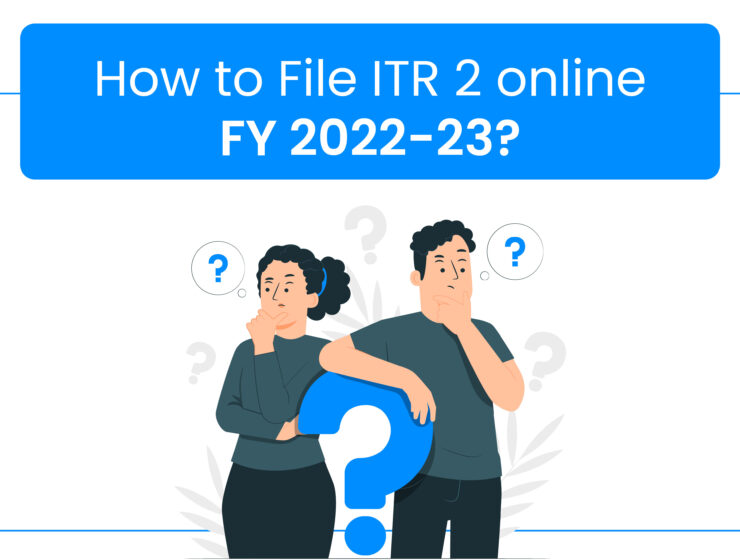

As the world becomes increasingly interconnected, many Indian taxpayers have investments, property, or income sources located outside India.
Whether it’s a bank account in the UAE, a pension plan in the UK, or shares in a US-based startup, all of these are considered foreign assets under Indian tax law.
If you’re a Resident and Ordinarily Resident (ROR) as per Indian tax rules, you are legally required to declare all foreign assets and income while filing your Income Tax Return (ITR).
This requirement is outlined in Schedule FA (Foreign Assets) of the ITR forms and applies even if these assets are dormant or held jointly.
- What Are Foreign Assets?
- Why is Disclosing Foreign Assets in ITR Important?
- Who Needs to Report Foreign Assets?
- How to Declare Foreign Assets and Foreign Income in Income Tax?
- File Your ITR with Fintoo in Just 45 Minutes
- Penalty for Not Declaring Foreign Assets in ITR
- What if You Didn’t Disclose Foreign Assets in Your ITR for FY 2024-25?
- Quick Checklist Before Filing ITR (For Foreign Asset Holders)
- Conclusion
- FAQs on Foreign Assets Disclosure in ITR
What Are Foreign Assets?
Foreign assets refer to any financial or physical asset held outside India. These are typically owned by Indian residents who have worked, invested, or inherited assets abroad. Here’s a breakdown of what counts as foreign currency assets or foreign financial assets:
Types of Foreign Assets That Must Be Declared:
- Foreign Bank Accounts – including current, savings, or deposit accounts (active or dormant)
- Foreign Property – residential or commercial real estate owned abroad
- Equity Holdings – shares or units of mutual funds in foreign companies
- Retirement Accounts – pensions or provident funds held in foreign jurisdictions
- Life Insurance Policies – foreign insurance or annuity contracts
- Financial Interest in Foreign Entities – directorships, shareholdings, or partnerships
- Signing Authority – if you hold power of attorney or signing access to a foreign account
- Foreign Fixed Assets – property, office equipment, or business infrastructure
- Other Assets – crypto assets, collectibles, or digital wallets held on foreign platforms
These assets must be reported regardless of their value or income generation. Even zero-balance accounts or jointly held assets must be disclosed.
This reporting obligation is part of India’s broader commitment to international transparency on foreign holdings, under initiatives like FATCA (Foreign Account Tax Compliance Act) and CRS (Common Reporting Standard).
Non-disclosure can trigger scrutiny from Indian authorities and international bodies such as the Office of Foreign Assets Control (OFAC).
Why is Disclosing Foreign Assets in ITR Important?
The disclosure of foreign assets in ITR is mandated by Indian tax law to ensure global income and asset transparency. It helps the government curb undisclosed foreign income and assets, money laundering, and tax evasion.
Key reasons for disclosing:
- Legal compliance under Indian tax law
- Avoid scrutiny or delays in ITR processing
- Prevent penalties and prosecution
- Claim benefits under the Double Taxation Avoidance Agreement (DTAA)
Who Needs to Report Foreign Assets?
Only taxpayers classified as Resident and Ordinarily Resident (ROR) need to disclose their foreign assets in the income tax return.
Exempt from foreign asset reporting:
- NRIs (Non-Resident Indians)
- RNORs (Resident but Not Ordinarily Resident)
If you’re unsure of your residency status, consult your tax advisor — it’s the first step before filing.
How to Declare Foreign Assets and Foreign Income in Income Tax?
Here’s how to report your foreign assets declaration properly:
Step-by-Step Guide:
- Determine Residency Status
Use the rules under Section 6 of the Income Tax Act to check if you qualify as ROR. - Gather Documentation
Collect statements, ownership proofs, transaction history, and valuation of all foreign currency assets. - Fill Schedule FA in ITR
- Report asset type, country code, ownership type
- Mention peak balance and closing balance
- Report income earned (interest, rental, dividends, etc.)
- Report asset type, country code, ownership type
- Disclose Foreign Income
Declare any income earned from these foreign assets and claim relief under DTAA if applicable. This includes:- Income from foreign property (e.g., rental income from a property overseas)
- Income from foreign bank accounts (interest earned from deposits abroad)
- Income from foreign investments (dividends, capital gains from overseas stocks, ESOPs, RSUs, etc…)
- Income from Foreign pensions and retirement funds
- Coordinate with Tax Expert
It’s highly recommended to consult a professional, especially when dealing with foreign financial assets.
File Your ITR with Fintoo in Just 45 Minutes
Get your ITR filed anywhere, anytime with the help of a dedicated tax expert via video call.
Penalty for Not Declaring Foreign Assets in ITR
Non-disclosure of foreign assets is treated as a serious offence under the Black Money (Undisclosed Foreign Income and Assets) and Imposition of Tax Act, 2015.
Consequences include:
- Penalty of ₹10 lakh per undisclosed foreign asset
- Imprisonment of up to 7 years
- Loss of credibility and possible investigation by authorities
Even if the omission is unintentional, you could face scrutiny and delayed ITR processing.
What if You Didn’t Disclose Foreign Assets in Your ITR for FY 2024-25?
Missed disclosing foreign assets this year?
Here’s what you can do:
- Revise your ITR before the deadline (usually December 31 of the assessment year)
- Coordinate with your CA to ensure accurate and complete reporting
- Avoid future non-compliance by maintaining a checklist
- If discovered later by tax authorities, you may have to pay penalties under the Black Money Act
In case of multiple years of omission, consider voluntary disclosure with legal help.
Quick Checklist Before Filing ITR (For Foreign Asset Holders)
- Determine your residential status
- Collect records of all foreign liabilities and assets
- Report even dormant or joint accounts
- Declare any foreign income
- Consult with a tax professional
Conclusion
Reporting your foreign assets in your income tax return is not optional — it’s a legal obligation for ROR taxpayers. The cost of non-compliance is too high to ignore.
By staying updated on the latest guidelines and using professional support, you can file your ITR confidently and stay compliant with all foreign asset reporting requirements.
FAQs on Foreign Assets Disclosure in ITR
Q1: Is it mandatory to report foreign bank accounts with zero balance?
Yes, even if your foreign account has no funds, it must be reported under Schedule FA.
Q2: Do NRIs need to disclose foreign assets?
No, NRIs are not required to disclose foreign assets in their Indian ITR unless they become ROR.
Q3: What is the last date to revise ITR for FY 2024-25?
The revised return can typically be filed until December 31, 2025.
Q4: Can I report foreign income and claim DTAA relief?
Yes, if you’ve paid tax on foreign income abroad, you can claim relief under applicable Double Taxation Avoidance Agreements.
Q5: What if I’m only a joint holder in a foreign property?
Yes, even as a joint holder, you are required to disclose the asset.
Related Posts
Stay up-to-date with the latest information.


